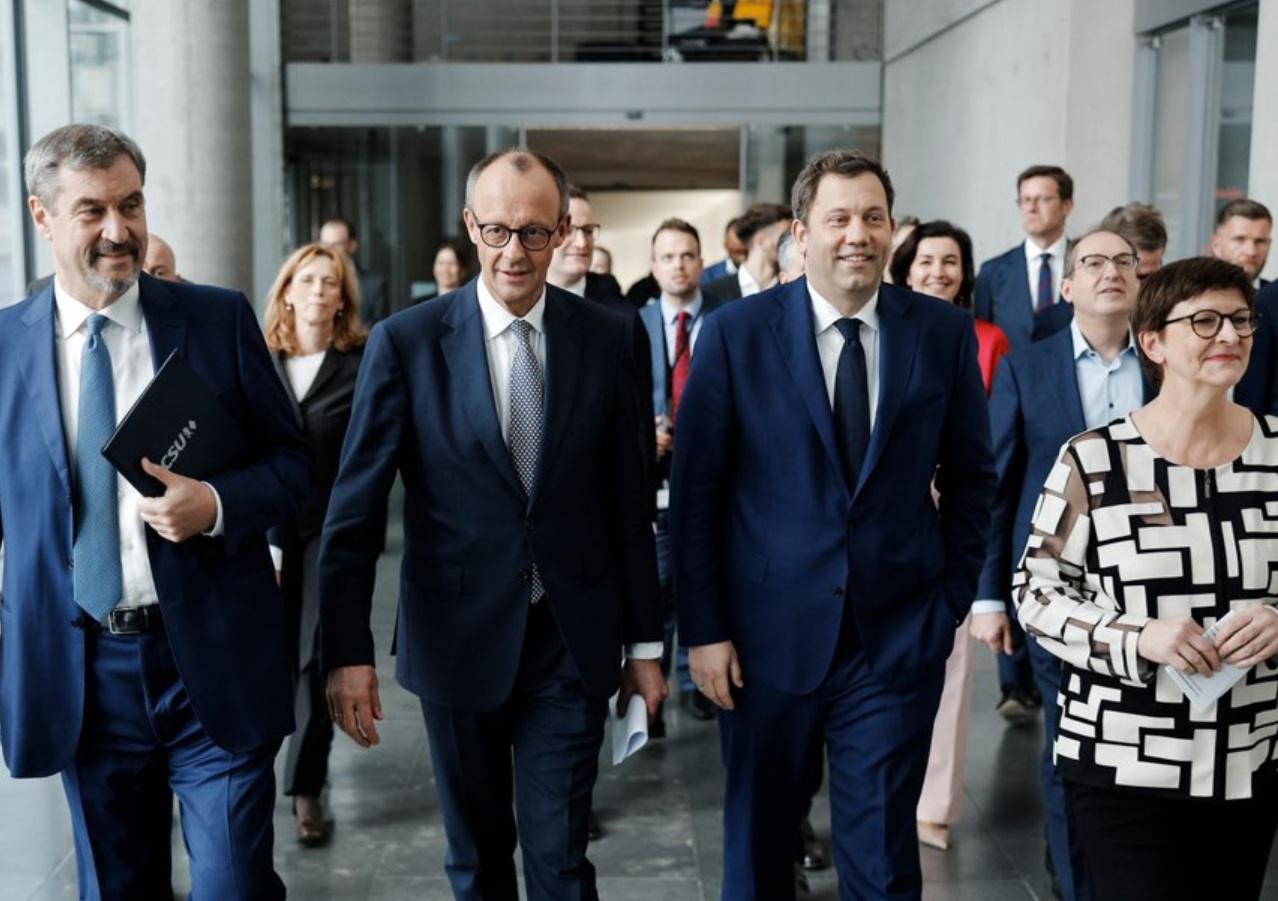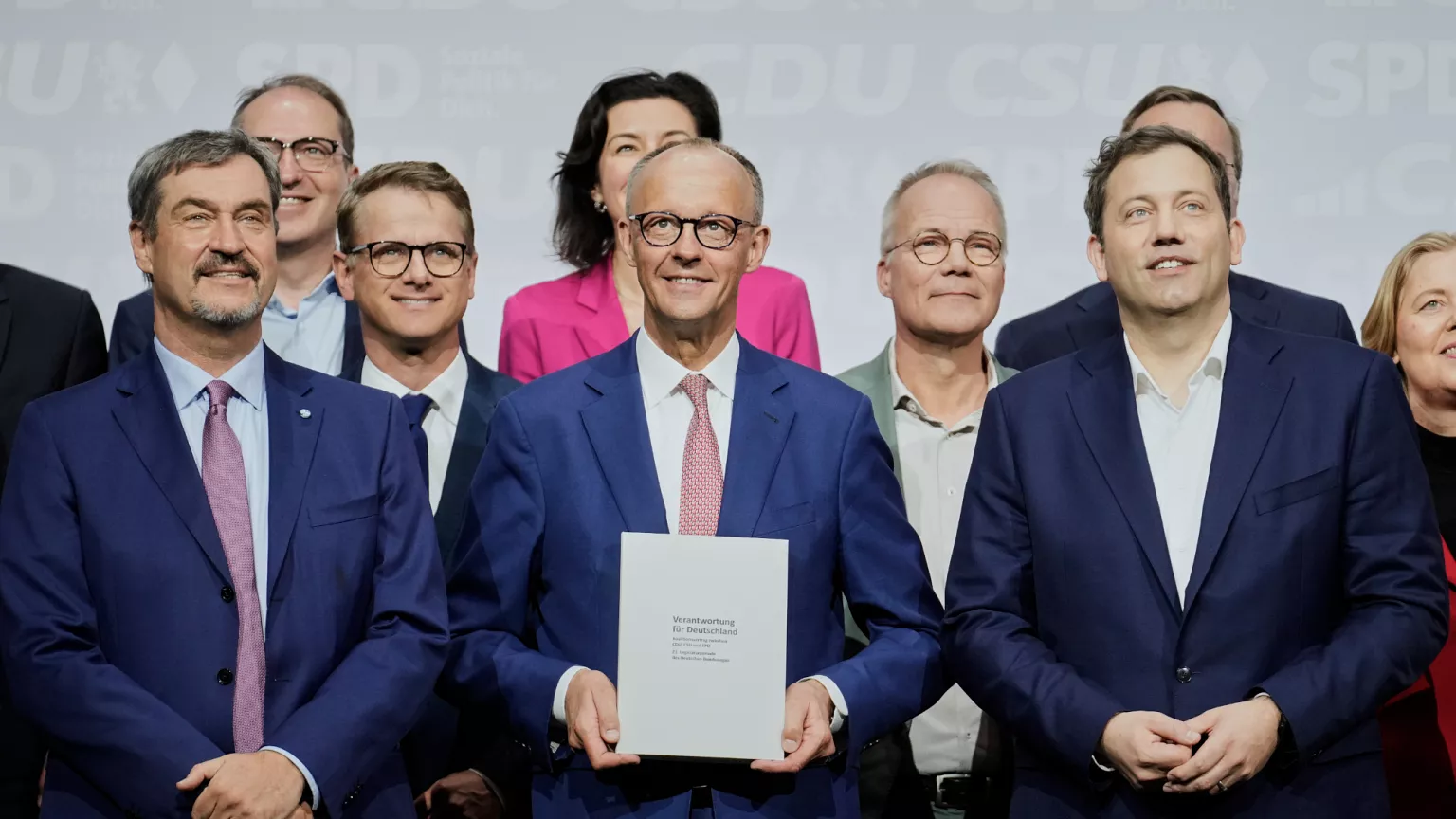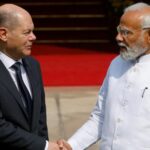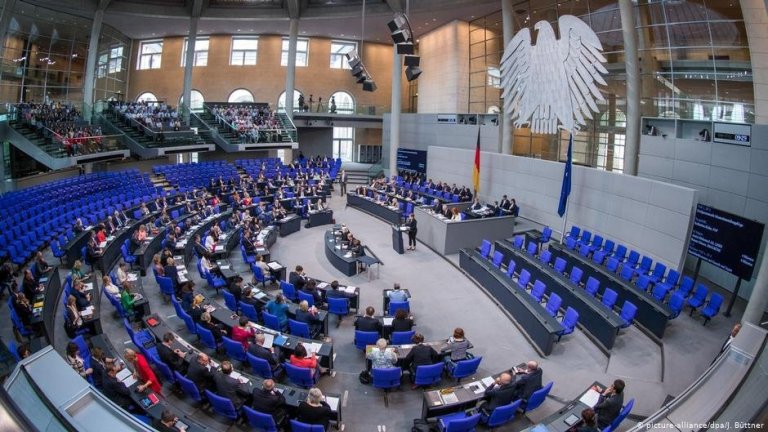The Germany Gouvernement.Ge
Federal Government of Germany
The Federal Government[1][2] (German: Bundesregierung, pronounced [ˈbʊndəsʁeˌɡiːʁʊŋ] ⓘ; abbr. BReg)[3] is the chief executive body of the Federal Republic of Germany and exercises executive power at the federal level. It consists of the Federal Chancellor and the Federal Ministers.[4] The fundamentals of the government's organisation, as well as the method of its election and appointment, along with the procedure for its dismissal, are set down in the sixth section (articles 62 to 69) of the German Basic Law (Grundgesetz).

Ahead of Germany’s parliamentary elections in February, Friedrich Merz, leader of the Christian Democratic Union/Christian Social Union (CDU/CSU), emphasized Turkey’s strategic importance. In doing so, he called upon European countries to strengthen their foreign-policy cooperation with Turkey in response to mounting security challenges and potential shifts in US foreign policy. In addition, he committed to strengthening Turkey’s ties with the European Union, specifically on migration and Syrian security—while implicitly arguing that Turkey should have a “privileged” or “strategic” partnership with the EU, rather than full membership.

CDU party leader Friedrich Merz, set to be sworn in as Germany's new chancellor, pledged that the three parties would "vigorously get to work."
Germany's conservative CDU/CSU political union and the centre-left Social Democrats (SPD) have signed off on a coalition deal in Berlin which paves the way for a new government to be sworn in on Tuesday. CDU party leader Friedrich Merz, set to be sworn in as Germany's new chancellor, pledged that the three parties would "vigorously get to work.""We know that it is our almost historical obligation to lead this coalition to success. We are determined to do this together," he said ahead of the signing.

A New Era for the Germany-India Partnership
Germany has left its China-centric approach to Asia behind. As German Chancellor Olaf Scholz and his ministers arrive in India, Berlin and New Delhi are in the middle of forging a new, ambitious agenda. This is now likely to change. In light of increasing tensions with China, the German government has prioritized working with like-minded partners in the Indo-Pacific—including Japan, Australia, and India. The “Focus on India” paper captures this changed thinking in Berlin and aims to set a new, ambitious agenda for the relationship with India.

New opportunities – for some
This year Germany launched a new scheme to attract qualified professionals. The government introduced the reworked Skilled Immigration Act, to lower the barriers to immigration of skilled workers from countries outside the European Union.
Part of this initiative is the so-called "Chancenkarte" or "opportunity card" – a residence permit that allows workers from non-EU third countries to enter Germany without a work contract to seek employment. It is based on a points system similar to other countries like Canada.
Up to 25,000 people were allowed to come to Germany using this route in 2024, according to Germany's Federal Employment Agency (Bundesagentur für Arbeit), with the agency expecting to double this number next year.
WELCOME!
In 2024, people who came to Germany as asylum seekers were once again in the spotlight, as the social and political debate on refugees continued.
This year saw political upheaval and major changes in migration policy in Germany, affecting the nearly 3.5 million people who have received international protection here.
There are close to 3.5 million migrants in Germany with some form of international protection – more than at any time in the past.
Parliament passed a number of reforms, most of which reflected more restrictive immigration policies.
The majority of those positive decisions were made in cases involving individuals with qualifications from Turkey, Bosnia and Herzegovina, the Philippines, Tunisia, Syria, India and Ukraine.
